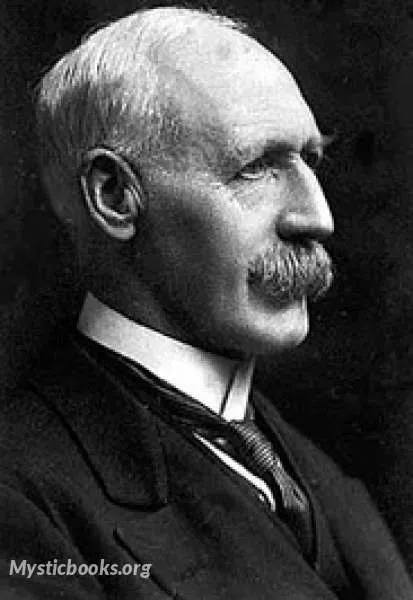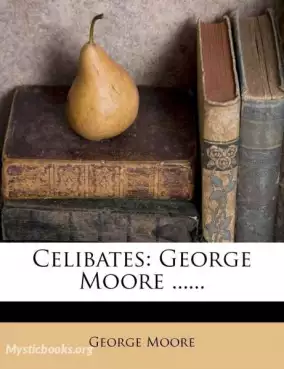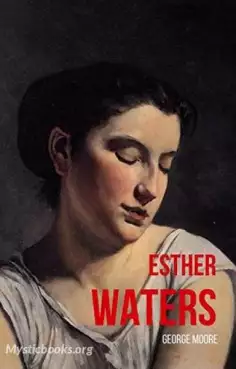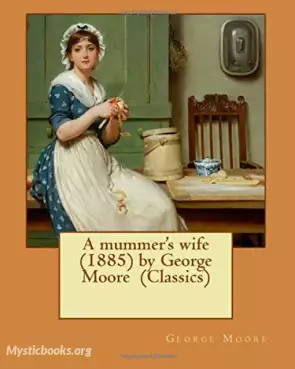
Timeline
Title
Country/Nationality
George Moore
George Augustus Moore was an Irish novelist, short-story writer, poet, art critic, memoirist and dramatist. Moore came from a Roman Catholic landed family who lived at Moore Hall in Carra, County Mayo. He originally wanted to be a painter, and studied art in Paris during the 1870s. There, he befriended many of the leading French artists and writers of the day.
As a naturalistic writer, he was amongst the first English-language authors to absorb the lessons of the French realists, and was particularly influenced by the works of Émile Zola. His writings influenced James Joyce, according to the literary critic and biographer Richard Ellmann, and, although Moore's work is sometimes seen as outside the mainstream of both Irish and British literature, he is as often regarded as the first great modern Irish novelist.
Moore was born in Moore Hall in 1852. As a child, he enjoyed the novels of Walter Scott, which his father read to him. He spent a good deal of time outdoors with his brother, Maurice George Moore, and also became friendly with the young Willie and Oscar Wilde, who spent their summer holidays at nearby Moytura. Oscar was to later quip of Moore: "He conducts his education in public"
His father had again turned his attention to horse breeding and in 1861 brought his champion horse, Croagh Patrick, to England for a successful racing season, together with his wife and nine-year-old son. For a while George was left at Cliff's stables until his father decided to send him to his alma mater facilitated by his winnings.
In 1868, Moore's father was again elected MP for Mayo and the family moved to London the following year. Here, Moore senior tried, unsuccessfully, to have his son follow a career in the military though, prior to this, he attended the School of Art in the South Kensington Museum where his achievements were no better. He was freed from any burden of education when his father died in 1870. Moore, though still a minor, inherited the family estate that was valued at £3,596.
During the 1880s, Moore began work on a series of novels in a realist style. His first novel, A Modern Lover (1883) was a three-volume work, as preferred by the circulating libraries, and deals with the art scene of the 1870s and 1880s in which many characters are identifiably real. The circulating libraries in England banned the book because of its explicit portrayal of the amorous pursuits of its hero. At this time the British circulating libraries, such as Mudie's Select Library, controlled the market for fiction and the public, who paid fees to borrow their books, expected them to guarantee the morality of the novels available. His next book, a novel in the realist style, A Mummers Wife (1885) was also regarded as unsuitable by Mudie's and W H Smith refused to stock it on their news-stalls. Despite this, during its first year of publication the book was in its fourteenth edition mainly because of the publicity stirred up by its opponents. The French newspaper Le Voltaire published it in serial form as La Femme du cabotin in July–October 1886. His next novel A Drama in Muslin was banned by Mudie's and Smith's. In response Moore declared war on the circulating libraries by publishing two provocative pamphlets; Literature at Nurse and Circulating Morals. In these, he complained that the libraries profit from salacious popular fiction while refusing to stock serious literary fiction.
Moore was friendly with many members of the expatriate artistic communities in London and Paris, and had a long-lasting relationship with Maud, Lady Cunard. Moore took a special interest in the education of Maud's daughter, the well-known publisher and art patron, Nancy Cunard. It has been suggested that Moore, rather than Maud's husband, Sir Bache Cunard, was Nancy's father, but this is not generally credited by historians, and it is not certain that Moore's relationship with Nancy's mother was ever other than platonic. Moore was believed by some to be impotent and was described as "one who told but didn't kiss". Moore's last novel, Aphrodite in Aulis, was published in 1930.
He died at his home at Ebury Street in the London district of Belgravia in early 1933, leaving a fortune of £70,000. He was cremated in London at a service attended by Ramsay MacDonald among others. An urn containing his ashes was interred on Castle Island in Lough Carra in view of the ruins of Moore Hall.
Books by George Moore

Celibates
The author is considered the first great Irish writer of realist fiction and is said to have been an inspiration for James Joyce. Celibates is a novel of three characters: Mildred Lawson, John Norton and Agnes Lahens.They have nothing in common other...

Esther Waters
“She stood on the platform watching the receding train. A few bushes hid the curve of the line; the white vapour rose above them, evaporating in the pale evening. A moment more and the last carriage would pass out of sight. The white gates swung forw...

A Mummer's Wife
A Mummer's Wife tells the story of Kate Ede, a bored Midlands housewife unhappily married to an asthmatic draper. When a handsome travelling actor comes to lodge with her family, she succumbs to temptation, with disastrous consequences. This scholarl...

Untilled Field
George Moore's *The Untilled Field* is a collection of short stories that explores the lives of people in rural Ireland at the end of the 19th century. Set in the author's native County Mayo, the stories offer a nuanced glimpse into the impact of mas...

Muslin
Muslin, originally titled A Drama in Muslin, is a novel by George Moore that explores the lives of five young Irish women after their graduation from a convent school. The narrative focuses on Alice Barton, who grapples with societal expectations and...